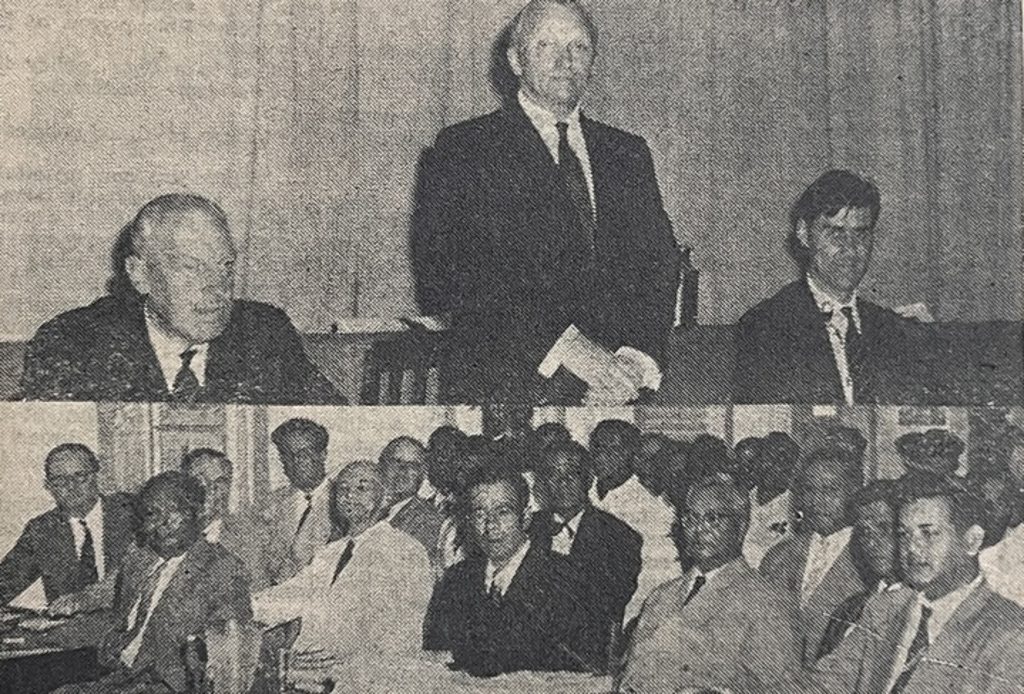SIMPLY and squarely, governments (in London and in Fiji), millers, canegrowers, and mill workers must all in respect of one period or another share the blame for strife in the sugar industry, states the Fiji Sugar Inquiry Commissioners in their report.
They comment that it would not help to set out fully the facts and causes of the recent strife or to apportion blame.
This was published in this newspaper on Thursday September 7, 1961.
In 1944 a full board and essentially sound report was submitted by Dr Shepherd to the Secretary of State on the strife and problems then prevailing in the sugar industry.
“Dr Shepherd’s most important recommendation was that an advisory sugar board should be set up,” the report said.
“This recommendation, on the advice of the Governor, was approved by the Secretary of State and steps were announced for legislation. Since then, no action whatsoever has been taken.
“The millers and one of the two groups of growers each objected to an advisory sugar board, and the two governments just allowed a good scheme to die. Had they pressed on with legislation, there might well have been no cause for our commission to be appointed some 16 years later.
“The millers are entitled to be proud of the part they have played in developing the sugar industry in Fiji during the last 80 years.
“We are grateful to them for their frankness at the public hearings and later with us. We have received all the information that we could expect and a full answer to every question.
“We must, however, criticise them severely for their handling of the growers in 1959 and 1960.
“The proceedings have been described as negotiations, but this is hardly a correct description.
“The millers’ main contention was that their share of sugar proceeds had become inadequate, and that for that reason they could not afford to pay the growers such as high price for cane as in the past.
“Yet they did not produce for the growers any accounts of any sort of any stage until our public hearings.
“This was no way to deal with people who admittedly were to have a share of the sugar proceeds.
“We place the main blame for this attitude on the board of directors in Australia. Not one of them saw the growers during these talks, and no real delegated power to negotiate or to give figures unconditionally was given to the millers’ representatives on the spot.
“We now find that their main argument was in fact broadly true. It was a thousand pities that some of the copious figures now publicly given were not offered unconditionally to the growers’ leaders at the start.”



